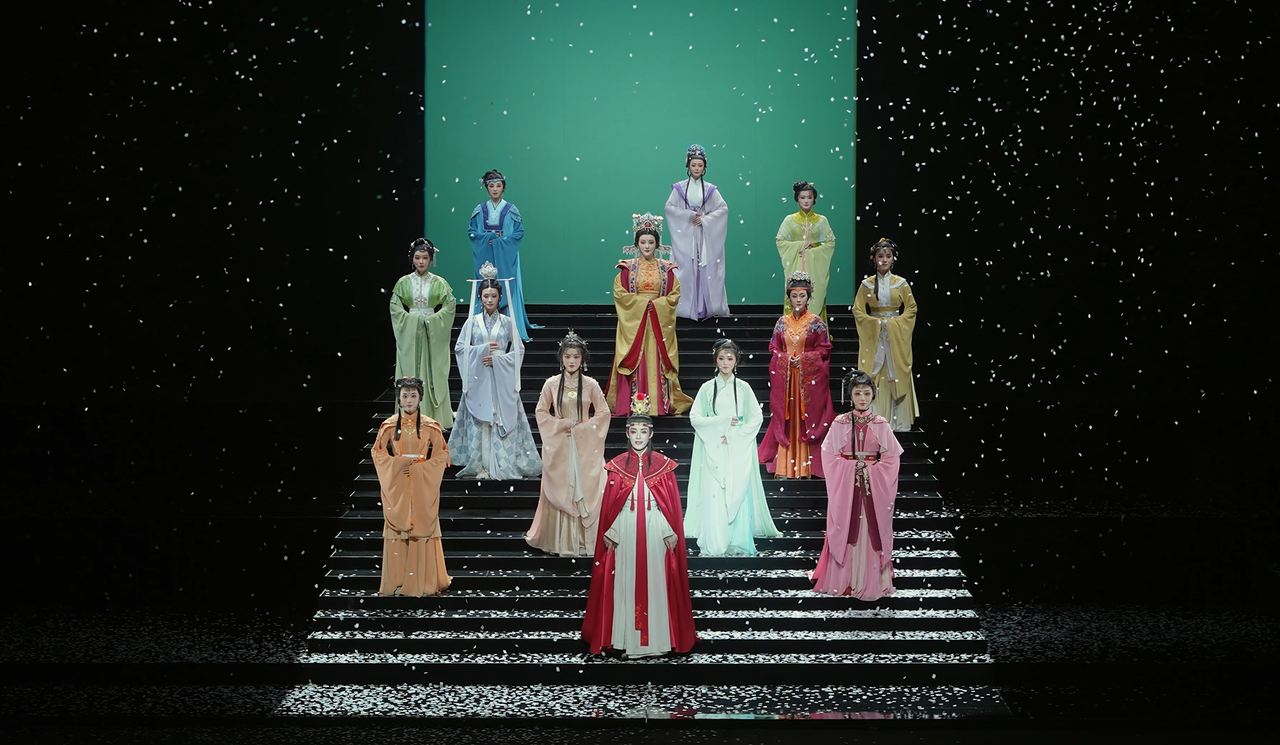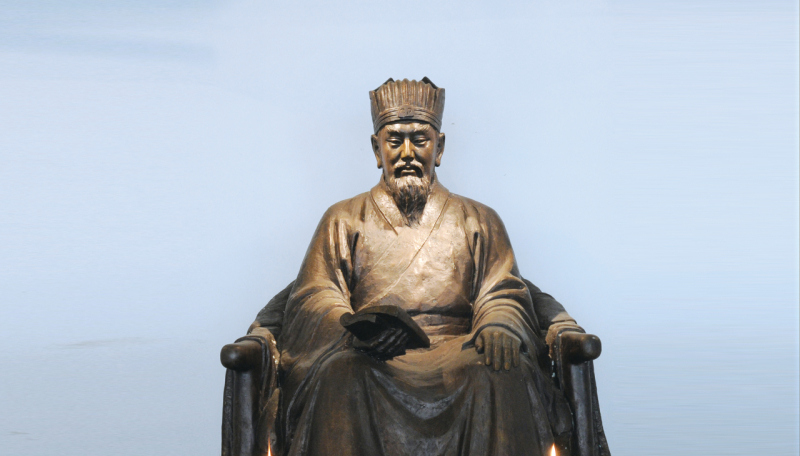
A statue of Liu Ji, a founding member of the Ming dynasty.
"I ride on the Qingtian crane, to hunt the Qingtian lingzhi mushrooms," thus wrote Liu Ji in his masterpiece poem Two Ghosts, showing his deep affection for his hometown, and the crane and the lingzhi mushroom he mentioned in the poem have long become the cultural symbols of Qingtian.
Born in Wuyang village (now part of Wencheng county), Nantian township, Qingtian county (known as one of the "72 Blessed Places") in the year of 1311, Liu Ji, courtesy name Bowen and posthumously titled Wencheng, was a founding member of the Ming dynasty (1368-1644) and is the most famed historical figure in Qingtian.
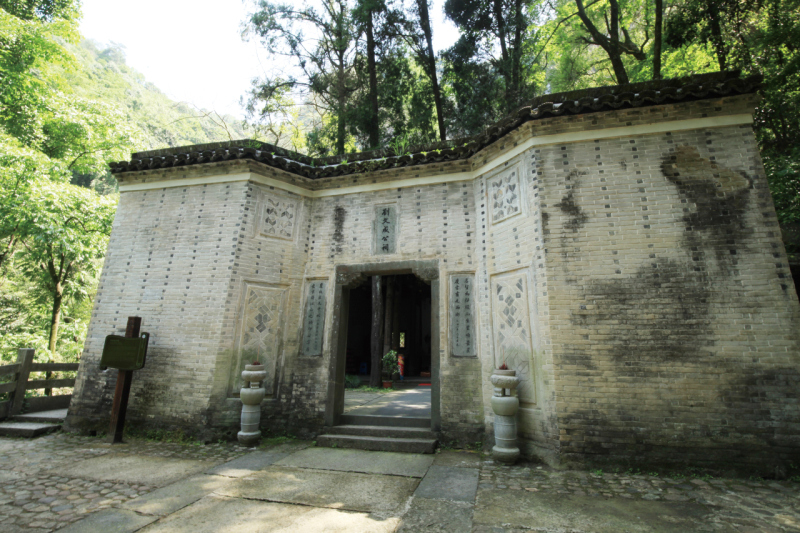
The Liu Wencheng Temple, which was built to commemorate Liu Ji.
The Shimen Cave is located on the bank of the Oujiang River, about 32 kilometers northwest of Qingtian county, and it is the most famous local scenic spot. There are two mountains standing on the riverside facing each other, together forming the shape of a gate, and a valley as deep as a cave with abundant trees and a majestic waterfall.
It is clear that the most celebrated historical figure and the best-known scenic spot of Qingtian have a certain relationship between them. In the Shimen Cave, there is a monument and a memorial temple, which are said to have something to do with Liu Ji, for they were specially built to commemorate Liu, who once studied in the Shimen Academy of the Shimen Cave it his youth. However, no historical record of Liu studying or living in the Shimen Cave could be found in literatures such as the History of Ming Dynasty, or in poems written by himself. This is partly understandable, because if it were true, it would have happened when Liu was quite young and the history books simply couldn't record everything after all.
But when it comes to poems, questions arise: Liu is a poet who wrote a considerable number of poems and articles throughout his life, how come he didn't mention anything about the Shimen Cave if he had really studied or lived in the place?
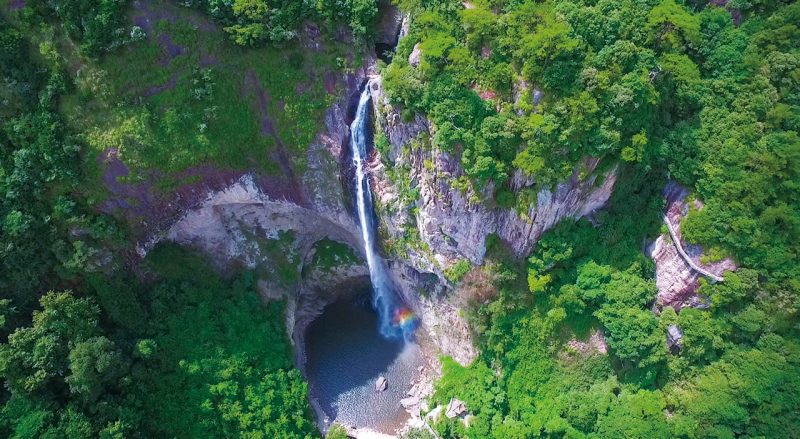
An aerial view of the Shimen Cave.
On this point, the words of Zhang Taiyan (1869-1936), a famous master of Chinese studies and an admirer of Liu Ji, may clear up some of the doubts for us. In one of many prefaces he wrote, he explained that Liu Ji's poems were very much scattered, so the fact that nowadays none of his poems about the Shimen Cave could be found does not prove that he did not write them, or he did not study in the Shimen Cave.
Then how did people infer that Liu Ji had studied in the Shimen Cave? Liu Yaodong, Liu Ji's 20th-generation grandson, mentioned in the several writings, including the Chronology of Liu Wencheng that his ancestor once had a teacher named Zheng Fuchu who, according to records, participated in the repair of the Shimen Academy in 1327 and worked here.
Therefore, it is reasonable to assume that when Liu Ji was 18 to 22 years old (1327-1332), he was with his teacher and studied in the academy. In fact, according to some scholars, Liu Ji's article for the imperial examinations which was titled "Chunqiu Mingjing" (literally Spring and Autumn Confucian classics) was written at the Shimen Cave.
However plausible, it was all but deduction. Furthermore, it is a little strange that literary writings from the Ming dynasty barely mentioned Liu Ji at the Shimen Cave. For example, in the Selected Poems of Qingtian compiled by Zhang Qiangsong, there are 69 poems associated with the Shimen Cave, and only one of them made reference to Liu Ji's studying in the Shimen Cave. The authors of the poems include descendants of Liu Ji, people from Qingtian and neighboring counties, and local officials, who should have been aware of Liu Ji's whereabouts during his lifetime.

The Shimen Waterfall.
Since the Qing dynasty (1616-1911), some poems about Liu Ji began to emerge. In modern times, from scholars to common people, everyone seems to believe that Liu Ji had once studied in the Shimen Cave, which has become a folklore legend, and in Qingtian in particular the story is known by almost everyone.
The literary aura emitting from the Shimen Cave is believed to derive from both the Shimen Waterfall and all the prominent figures who once came to the place. Countless poets and scholars have come here and left many poems celebrating the Shimen Cave, including such illustrious names as Xie Lingyun (385-433), Li Bai (701-762), Shen Kuo (1031-1095), Tang Xianzu (1550-1616), among others. There have been 117 cliff inscriptions preserved. Guo Moruo (1892-1978), a famous contemporary writer, came to the Shimen Cave from far away in his old age and left a soul-touching poem.
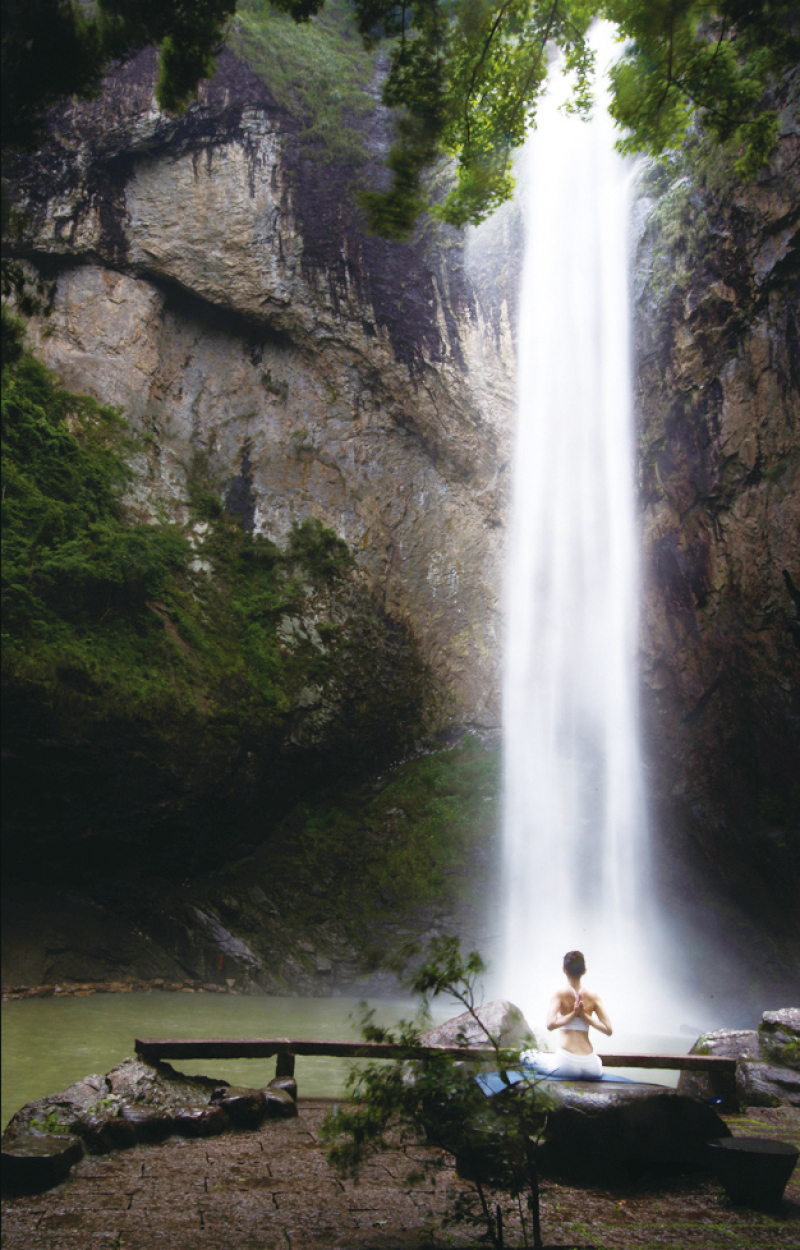
Practicing yoga near the Shimen Cave.
You may want to visit Qingtian, where you could lie down on the bed that Liu Bowen once slept on, knock on the wooden fish stone and forget your troubles. You could also sit on the seat where he used to sit, imagining yourself a fellow student of his generation. You could take a sip of the fragrant tea and let the sacred water wash away the dust of your soul, and pay your respect in front of the statue of Liu Bowen to wish yourself good luck. In addition, you could also appreciate the profound Bowen culture from visiting Bowen Ancient Village and some must-see architectural buildings.
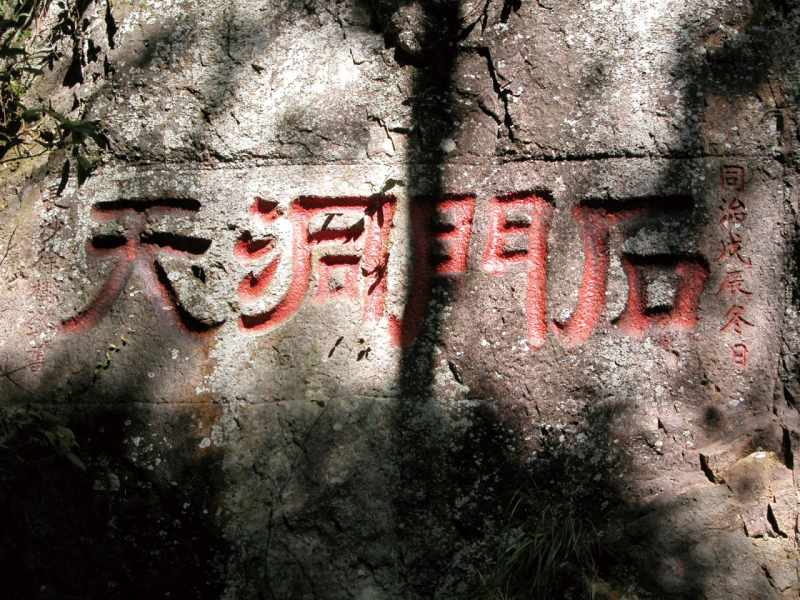
An inscription showing the Chinese characters “Shi Men Dong Tian” (or Shimen Grotto-Heaven).
There are beautiful natural landscape and elements of humanism in every corner of the Shimen Cave. Nowadays, situated in the east of the scenic spot, the project to build the Qingtian Digital Poetry Road E-Station has been officially started, where digital technology, intelligent technology and network technology will be applied. It is aimed at creating an AI meta-universe integrating digital experience, cultural tourism, cultural industry and study tours, which is destined to become a bright pearl along the Oujiang River Landscape Poetry Road and ready to shine for the world.
By the time that the great project is completed, visitors at home and abroad can come here after sight-seeing in the famous Shimen Cave, for a special VR experience of poetry recitation.
Editor: Li Qiaoqiao

